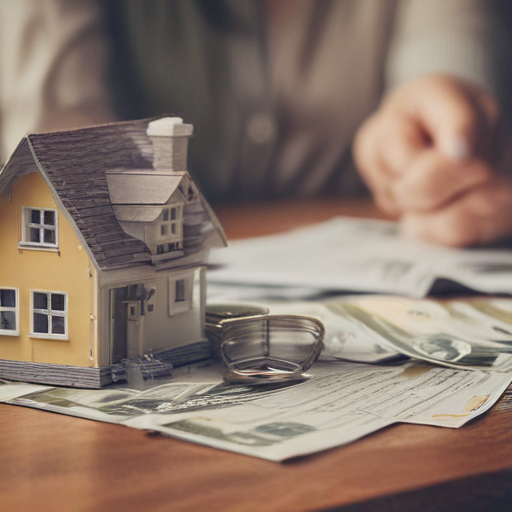Maximizing Savings: Finding the Best Home Loan Quotes with eMortgages.com Here's an overview: Introduction: The…
Introduction to Mortgage Terms for Investors
Introduction to Mortgage Terms for Investors
Diving into the world of mortgages can feel like learning a new language. But don’t sweat it. Here, we break it down so you can talk shop like a pro. First up, APR, or Annual Percentage Rate, shows the cost of borrowing money on an annual basis. It includes interest and other fees, making it a clearer snapshot of the loan’s true cost than just the interest rate alone. Equity? That’s the difference between your property’s current market value and the amount you owe on the mortgage. In simple terms, it’s what you truly “own” of your home. Getting these terms down is just the start. Stay tuned as we decode more jargon, helping you navigate the mortgage maze with confidence. Check out our Mortgage Blog at https://emortgages.com/learning-center/ for additional resources.

APR: Understanding Annual Percentage Rate
APR stands for Annual Percentage Rate. It’s a number that tells you how much you’ll really pay for a loan when you consider the interest rate plus any fees. Think about buying a house or getting a mortgage; the APR is like the real price tag on that loan. It’s different from the basic interest rate because it includes all the extra costs, like origination fees or points. The higher the APR, the more you’re paying over time. So, when you’re comparing loans, don’t just look at the interest rate. Check the APR. It gives you a clearer picture of the deal’s true cost. This is key when you want to make smart moves with your money.
Equity 101: Building Your Stake in Property
Equity – it’s essentially the difference between your home’s current market value and the amount you owe on your mortgage. Think of it as your slice of the pie. The more of your mortgage you pay off, the bigger your slice gets. So how do you build equity? It boils down to two main things. Firstly, paying down your mortgage increases your equity. Every time you make a monthly payment, a portion goes toward reducing the amount you owe on your loan, which in turn increases your equity. Secondly, if your home’s value goes up, thanks to market conditions or home improvements you’ve made, your equity grows without you having to lift a finger. But why should you care about equity? For starters, having equity means having options. You can borrow against it with a home equity loan or line of credit, or you might decide to sell your home and use the equity to make a down payment on your next place. Building equity takes time but think of it as a slow and steady race where holding onto your property and taking care of it pays off in the long run.
Mortgage Types and What They Mean for You
When diving into the mortgage pool, it’s the types of mortgages that make the first splash. Let’s break it down, simple and straight. Fixed-rate mortgages are like your reliable friend who never changes. You pay the same mortgage rate for the life of your loan, whether that’s 15, 20, or 30 years. Stability is the name of the game here. No surprises in what you owe month to month. Then, there’s the adjustable-rate mortgage (ARM). It’s a bit like riding a wave; your interest rates change with market trends. You might start with lower rates compared to fixed-rate mortgages, but after a set time, your rates adjust. It could mean lower payments, but it’s a gamble because your payments can also go up. Interest-only mortgages allow you to pay just the interest for a few years at the beginning of your loan term. Sounds great, right? Well, keep in mind, once you hit the principal payment period, your payments jump since you’re paying off the loan capital. Lastly, reverse mortgages are unique. Aimed at older homeowners, they allow you to borrow against your home’s equity. Instead of you paying the lender, the lender pays you, with the loan being due when you sell the home, move out, or the last borrower passes away. Each type serves different financial situations and goals. It’s about picking the right tool for your journey to homeownership or investment.
Interest Rates Explained: Fixed vs. Adjustable
When diving into the world of mortgages, the interest rate you choose can make a big impact on your monthly payments and overall cost of the loan. Let’s break it down—simple and straight. Fixed interest rates stay the same for the life of the loan. If you snag a 4% rate, it stays at 4% whether it’s a scorching summer or a freezing winter, no surprises. Now, adjustable rates? They’re the chameleons of the mortgage world. They change based on market conditions. You might start with a low rate, which can be great, but if the rates go up, so does your monthly payment. In essence, if you like consistency and knowing exactly what you’ll pay, fixed is your friend. If you’re willing to gamble for a potentially lower rate, adjustable could be your ace. But remember, with adjustable rates, you have to be ready for the possibility that your payments could climb. Choose wisely; it’s a big deal in the long haul.
LTV (Loan-to-Value) Ratio: A Crucial Mortgage Term
The LTV or Loan-to-Value ratio is a big deal when you’re dealing with mortgages. Think of it as the ratio between the amount you want to borrow and the value of the property you’re eyeing. Banks and lenders use LTV to figure out how risky it is to lend you money. The higher the LTV, the riskier the loan is for the lender. Here’s why it matters: If you have a high LTV, say above 80%, lenders might think twice about your loan or charge you more in interest to cover their risk. It can also mean you’ll have to get mortgage insurance, which is an extra cost for you. Keeping your LTV lower can give you better loan conditions. Basically, the less you have to borrow compared to your home’s value, the better off you are. Aim for a lower LTV to score a better deal on your mortgage.
The Role of Credit Scores in Mortgage Applications
Alright, when you’re aiming to buy a house and need a mortgage, your credit score is like the gatekeeper. Think of it as the number that tells lenders if you’re good at paying back money you borrowed. It’s pretty straightforward – the better your credit score, the more likely lenders will trust you with a loan. Here’s the deal: a high credit score can get you a lower interest rate, which means you pay less money over the life of your loan. On the flip side, a lower score might still get you a loan, but expect to cough up more in interest.
Scores typically range from 300 to 850. Aim for a score above 670; that’s considered good. The magic numbers for great deals usually start at 740 and up.
Remember, a few factors influence your score, like how timely you pay bills, your debt levels, and how long you’ve had credit. So, keep those bills paid on time, don’t max out your cards, and having a longer credit history can do wonders for your score.
In simple terms, a solid credit score opens doors to better mortgage rates. It tells lenders you’re a safe bet, and they reward you with lower costs. That’s the role your credit score plays – it’s a key player in your journey to getting a mortgage. Keep it healthy!
Closing Costs: What They Include and How to Budget for Them
Closing costs catch many by surprise. Think of them as the finale in your home buying quest. They’re the fees paid at the end of the deal, crucial for sealing the purchase. Typically, expect closing costs to range between 2% and 5% of the home’s purchase price. But what’s in the mix? Mainly, these costs cover processing your loan, home appraisal, title search to ensure the property is legally clear for sale, and a few more legal bits and bobs. Here’s a smart move – when negotiating your mortgage, ask the lender for a ‘Closing Cost Estimate’. This document breaks down each fee, giving you a clear view of what’s ahead. Now, budgeting. Start saving early, as these costs add up. Maybe set aside a bit of your income each month into a “home fund”. And stay sharp – sometimes you can negotiate with the seller to cover some of these costs. Keep your eyes wide open and wallet ready; forewarned is forearmed.
Refinancing: When It Makes Sense for Your Investment
Refinancing your mortgage means you’re getting a new loan to replace the old one. Sounds pretty straight, right? But when does it actually make sense to take this step? Let’s break it down. You might want to refinance if you can get a lower interest rate. This means you’ll pay less over the life of your loan. Makes sense—less interest, more savings. Another good time is when you want to switch from an adjustable-rate mortgage (ARM) to a fixed-rate mortgage. This move can give you a steady payment schedule, no surprises. Also, if you need cash for big expenses like home renovations or paying off high-interest debt, refinancing can free up that cash through a cash-out refinance option. But remember, refinancing isn’t free. Closing costs can eat into your savings, so make sure the numbers line up in your favor before making the leap. In summary, refinance if it saves money, adds stability, or frees up cash, just be sure it’s the right move financially.
Summary: Mastering Mortgage Terms for Investment Success
Understanding mortgage terms is crucial for anyone looking to invest in the property market. APR, or Annual Percentage Rate, tells you the real cost of your loan, including interest and fees, making it easier to compare different mortgages. Equity, on the other hand, is the part of your property you actually own – think of it as the difference between the property’s value and what you still owe on it. The higher your equity, the more financial flexibility you have. Grasping these concepts gives you a solid foundation to navigate the investment world. Remember, knowing your APR can save you money, and building equity increases your wealth. Keep these terms in mind, and you’ll be on your way to making informed investment decisions.




